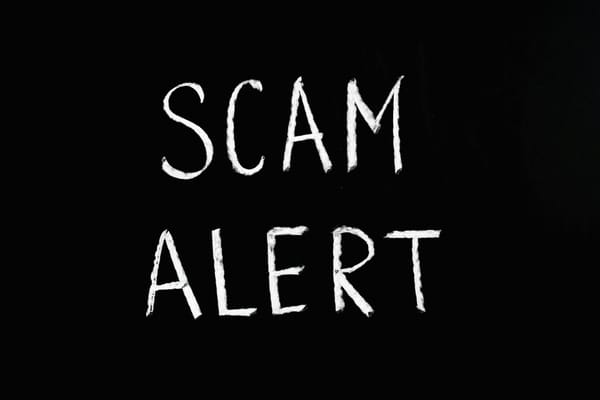UEFA EURO 2024 Scams Are Already Here – How to Stay Safe

The UEFA EURO 2024 is in full swing, and, like all significant events, it’s attracting all sorts of scams. People often look for great deals on tickets, but criminals are ingenious at conceiving schemes to trick people by using the EURO 2024 championship name and brand.
While only European teams play at EURO 2024, people from all over the world tune in to watch the games. And, like all big events, it attracts criminals. There was no doubt that scams would be rampant, and our telemetry shows just how far they will go.
As usual, scammers are interested in only a few items. They want to steal credentials, personal and financial information, persuade people to buy products that don't exist, and even install malware. And while their goal might not change, the methods vary and evolve over time.
We compiled a list of common scams. With the help of our telemetry, we hope to provide enough information so people stay safe and continue to enjoy EURO 2024 without worrying that they might become victims.
Fake tickets
Selling fake tickets to events is one of the oldest scams, but that doesn't mean people have learned their lesson. Unfortunately, scammers can be persuasive, going to great lengths to convince potential victims that they are selling legitimate tickets. They might even go so far as to buy ads on social media and set up fake websites.
The organizers have said well in advance that the only way to buy tickets is from the official website and app. Moreover, everything is digitally stored, and there are no paper or print-at-home tickets.
Tickets bought from second-hand markets, even if scammers might have bought them legitimately, are likely to be canceled. In fact, UEFA has already canceled hundreds of such tickets and will likely do the same in the future.
- Don't buy tickets from any source other than the official EURO 2024 website
- Don't believe ads on social media promising amazing prices
- There are no physical tickets for EURO 2024
Fake streaming websites
A quick search on Google yields countless websites prepared to stream the UEFA championship for free. Of course, it's not actually free. Scammers even promote these websites via social media, including LinkedIn.
Their goal is not really to offer people a cheap and legal way of watching the matches but to persuade them to hand over personal information. In some cases, they might even request a very small sum with the purpose of convincing victims to give away financial data voluntarily.

Some of these websites are very convincing and might not even ask for money, just a free account. The goal is the same: get people to provide credentials. Attackers will have testimonials showing that it's a legitimate website and "totally" offering a free livestream.

- Use only legitimate streaming services or TV transmission to watch EURO 2024
- Don't make payments, large or small, to any streaming service making promises that can't be legal
- Don't make "free" accounts on streaming websites. There's no such thing as free accounts
Counterfeit Jerseys
A strange but innovative scam involves selling fake jerseys. Scammers don’t limit themselves to selling fake merchandise; they are also trying to convince people that the merchandise is not fake by spreading misleading information.
"Wearing fake jerseys leads to potential fines" is one of these claims. The scammer is trying to persuade people to buy his "original" merchandise and stay safe.
- Offers too good to be true probably are
- Only purchase sporting equipment from official retailers
The UEFA EURO 2024 Mystery Box and other prizes

The email looks convincing and promises the chance of getting a unique item for a tiny price. Of course, that's not the case. They're just looking for your credit card information. In some variations of these scams, they might ask for a minimal delivery payment, low enough to be believable.
Other emails promise a lot more, like promotional trips across Europe during the EURO 2024 championship, even going so far as to show off some of the people who have already won.

Long story short, there are no prizes, and there are no free trips, no matter how appealing or how convincing they might sound or look.
- Be wary of emails from unknown senders or companies that inform you of amazing deals, promotions, prizes, or other gains. It's not uncommon to see emails informing people they’ve won the EURO 2024 lottery, which, of course, doesn't exist.
- Use a security solution capable of detecting malicious emails and of stopping users from opening dangerous links.
Fake Android apps
As expected, the Google Play store has been used to deploy malicious apps related to the Euro 2024 football championship. Google has already removed some of these apps, but they are likely also present on third-party websites and stores, ready to infect potential victims.
In the best-case scenario, the app does nothing malicious and only displays a full-screen ad. But that doesn't mean that the same type of application can’t be used to deploy dangerous malware like a banking Trojan.
- Only download apps from official stores
- Use a security application that can detect dangerous apps, such as Bitdefender Mobile Security for Android
- Don't download apps from third-party stores or websites, especially if that app was already deleted from the official store.
Scamio to the rescue
Fortunately, Bitdefender has provided users with a new tool named Scamio that can help you quickly identify any scam. Just upload the text, email, QR code or image to Scamio and quickly find out whether is indeed a scam or not.
Once Scamio confirms it is a scam, you should block and report the account. By doing so, you will protect yourself and help Instagram stop these accounts from scamming anyone else.
How to stay safe online during EURO 2024
- Purchase tickets only from the official EURO 2024 website. Do not believe ads on social media promising amazing prices and remember - there are no physical tickets for EURO 2024, only digital ones.
- Purchase sporting equipment only from official retailers. No one is going after people to fine them for wearing "fake" t-shirts.
- Be wary of emails from unknown senders or companies offering amazing deals, promotions, or prizes.
- Utilize tools like Scamio to identify scams quickly. Upload text, emails, QR codes, or images to verify if they are scams.
- Block and report scam accounts to protect yourself and others.
tags
Author
Silviu is a seasoned writer who followed the technology world for almost two decades, covering topics ranging from software to hardware and everything in between.
View all postsRight now Top posts
How to Protect Your WhatsApp from Hackers and Scammers – 8 Key Settings and Best Practices
April 03, 2025
Outpacing Cyberthreats: Bitdefender Together with Scuderia Ferrari HP in 2025
March 12, 2025
Streamjacking Scams On YouTube Leverage CS2 Pro Player Championships to Defraud Gamers
February 20, 2025
How to Identify and Protect Yourself from Gaming Laptop Scams
February 11, 2025
FOLLOW US ON SOCIAL MEDIA
You might also like
Bookmarks







